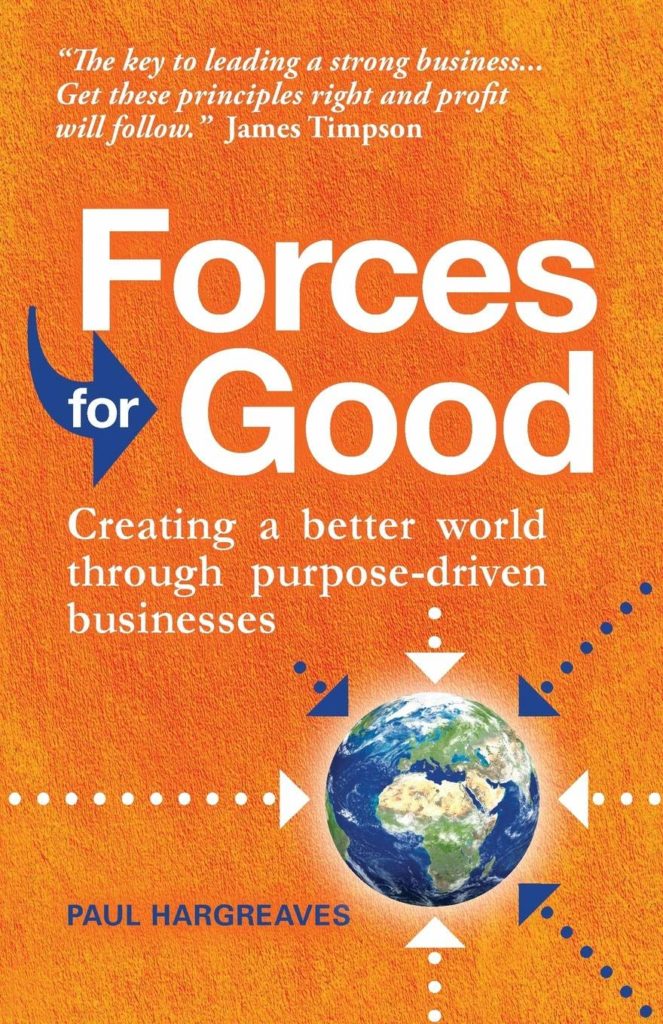
I was recommended this book and am enjoying it. Paul Hargreaves is an entrepreneur and is unashamed about such issues as profitability, but what I like is that is not his only, nor primary, bottom line. His concept of ‘purpose driven business’ outlines four bottom lines:
- people
- planet
- profit
- personal change
It makes a great read… I think there are also a few other considerations to be added – like how to strategically lose money as that is one of the first tasks Jesus set himself. He broke the power of mammon at the start.
Another area I found very interesting was where he listed 7 feminine traits (mostly found in women) that make for great leadership:
- empathy
- vulnerability
- humility
- inclusiveness
- generosity
- balance
- patience
Masculine traits, Paul suggests, include:
- competitiveness
- goal-orientation
- independence
- assertiveness
- protectiveness
Probably true. But are they masculine traits – or simply sinful? Jesus died as male!
So the last few parts are my musings. The book is great.

I have not read this book so am not commenting on it from any knowledge other than what you have written here. From what you have written I see a book that plants itself firmly within a capitalist economy. Then it tries to dress that up with social and political righteousness. I write this from the perspective of where we are at in terms of climate change and the collapse of biodiversity globally. Our children are marching in the streets accusing us of inter generational genocide as they have realized that on our present course there is no hope for them. This affirms what a minister of the environment said at a conference I attended several years ago. Commenting on the recent birth of a new grandchild he lamented that on our present path he did not see her surviving beyond her 50th birthday.
We have raised up corporate gods who like Baal demand the sacrifice of our children and their future in exchange for our present comfort. Does this book challenge the structure that leads us to species collapse or affirm it?
Ann… I would probably say a ‘mild’ challenge. People, planet, then profit. So it is a mild challenge to the systems from within.
I recognize the strategy of a ‘mild challenge’. It often claims to help people get on board with the ideas. Not sure. I would love to see research on that. My concern is that the time for a mild challenge may well be past. In terms of a future for the next generations, and I don’t mean a comfortable one, just a survivable one for the majority of humans and other species, our actions need to be much more radical.
Capitalism, in almost any form, will not survive climate change. Its assumptions of endless growth which generate profit cannot hold in the future. Unfortunately we have failed to come up with an alternative that appears attractive to many people. Though your post today of owning nothing and sharing everything may be an answer. I called that co-housing and have done it for 20 years. Empty spots in my home were filled with immigrants, low income and often mentally ill tenants – to whom I frequently forgave the rent. Yes, they got to share the beautiful eco-home with me and taught me much. So perhaps small scale choices like that are an answer. They certainly provide an alternative model to wrestle with.
The world is perishing now for lack of vision for the future. I often ask my university students what they envision a decade from now as all the assumptions of their field will be challenged and changed. And they sit there stumped and just look at me. They can only imagine what already exists and what is leading to their own worst outcomes.
The New Testament offers a vision for the future and no, I don’t mean the apocalypse but rather, the kingdom. However, those who claim to believe in that vision often offer something entirely different. We need to shift, shift radically and shift quickly. Visions are out there – alt right, fascism, populism and whatever other stuff abounds. If, as in your dream, the facades finally come down, there will be a battle for new facades, ways of moving forward in increasing crises. However, forward movement does not mean new facades, it means new structures. Climate change and the ensuing ongoing crises will act as a demolition ball to many of our existing structures. At that point, in the midst of intense wildfires, extreme storms, long term droughts, food shortages, and mass migrations we will have to create new structures on multiple scales. I certainly know what visions and solutions I prefer – those not based on fear. How do we get there? Are mild challenges enough?